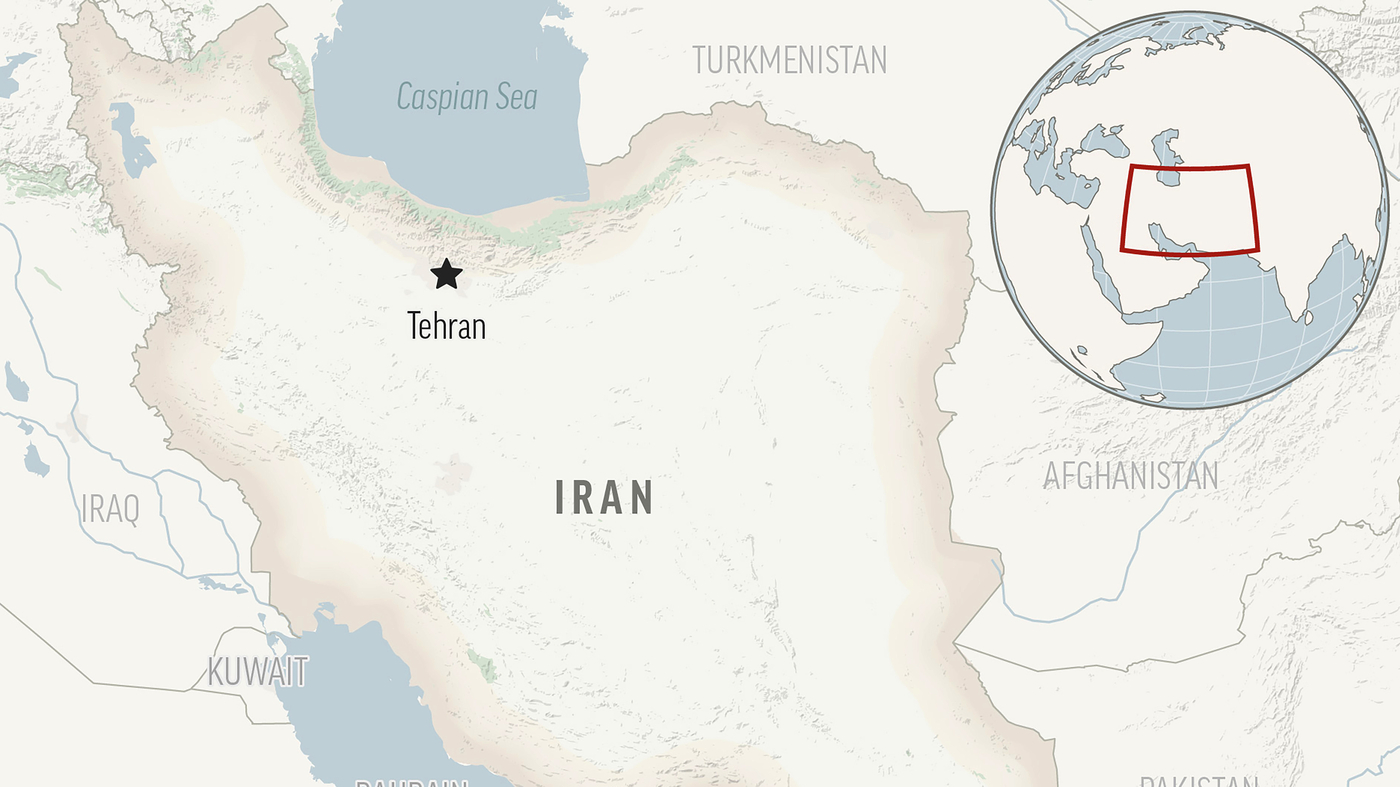The Tehran execution of the unnamed protester charged with “enmity against God” and “spreading corruption on Earth” cited by the Human Rights Organization
An Iranian court has issued the first death sentence linked to recent protests, convicting the unnamed person of “enmity against God” and “spreading corruption on Earth,” state media reports.
According to the state news agency, they were convicted for disturbing public order and peace, community and colluding to commit a crime against national security, war and corruption on Earth.
Five others who took part in the protests were sentenced to between five and 10 years in prison, convicted of being part of a crime against national security.
IRNA stated that these decisions can be appealed. The news agency did not name the protester who received the death sentence or provide details on when or where they committed the alleged crime.
Iranian authorities have charged over a 1000 people in Tehran with being involved in the anti-government protests.
That figure includes 43 children and 25 women, the group said in an update to its death toll on Saturday, saying that its published number represented an “absolute minimum.”
CNN cannot independently verify the number of people facing executions in Iran, or the latest arrest figures or death tolls related to the protests, as precise figures are impossible for anyone outside the Iranian government to confirm.
Despite the threat of arrests – and harsher punishments for those involved – Iranian celebrities and athletes have stepped forward to support the anti-government protests in recent weeks.
Iran is one of the top executioners. It typically executes prisoners by hanging. The document, signed by a senior Iranian police commander, was obtained by the human rights organization and requested the execution of one prisoner be carried out in public.
The execution of the man was reported by Mizan. A man was accused of blocking a street and attacking a member of the security forces with a machete. The wounded member of the forces had to have stitches.
Mizan stated that Shekari was arrested on Sept. 25 and sentenced on Nov. 20 forwaging war against God. That charge has been levied against others in the decades since 1979 and carries the death penalty. Mizan said an appeal by Shekari’s lawyer against the sentence had failed before his execution.
On October 23 she was sentenced to death, and executed the next day. It was the first execution connected to the protests to be publicly reported by state media.
“His execution must be met with the strongest possible terms and international reactions. Protesters who are protesting for their rights will be executed daily, unless something changes, the group’s director told CNN.
In a message ahead of Students’ Day on December 7 – which marks the anniversary of the murder of three university students by Iranian police under Shah Mohammad Reza Pahlavi’s regime in 1953 – the reformist former leader said the government must listen to the demonstrators before it is too late.
Shekari’s prosecution in Iran’s Revolutionary Court and the Interference Between Iranian Women and the Kurdish-Malaysian Security Forces
Prominent Iranian Sunni cleric Molavi Abdolhamid Ismaeelzahi on Tuesday called on the country’s judiciary to investigate and prosecute individuals abusing women in prisons.
Since the demonstrations began, authorities have unleashed a deadly crackdown, with reports of forced detentions and physical abuse being used to target the country’s Kurdish minority group.
An investigation by CNN revealed that sexual violence has been used against protesters in Iran’s detained centers since the start of the unrest.
Meanwhile, Iran’s Supreme Leader has praised the Basij – a wing of Iran’s Revolutionary Guard – for its role in the crackdown, describing the protest movement as “rioters” and “thugs” backed by foreign forces.
The UN’s High Commissioner for Human rights called for an independent investigation into human rights abuses in Iran in November, after saying it was in a serious human rights crisis.
At least a dozen people have received death sentences for their involvement in the demonstrations, and activists say others could be put to death in the future.
Sheraki said that he was offered money to attack the security forces. Iran’s government for months has been attempting to portray foreign countries as fomenting the unrest in the country, instead of the Iranians who are angry about the country’s finances, heavy-handed policing and other troubles.
Shekari had been convicted in the Tehran’s Revolutionary Court, which typically holds closed-door cases that have been criticized for not giving those on trial a chance to see the evidence against them.
After his execution, Iranian state television aired a heavily edited package showing the courtroom and parts of Shekari’s trial, presided over by Judge Abolghassem Salavati.
Salavati faces U.S. sanctions for overseeing cases “in which journalists, attorneys, political activists and members of Iran’s ethnic and religious minority groups were penalized for exercising their freedom of expression and assembly and sentenced to lengthy prison terms, lashes and even execution,” according to the U.S. Treasury.
